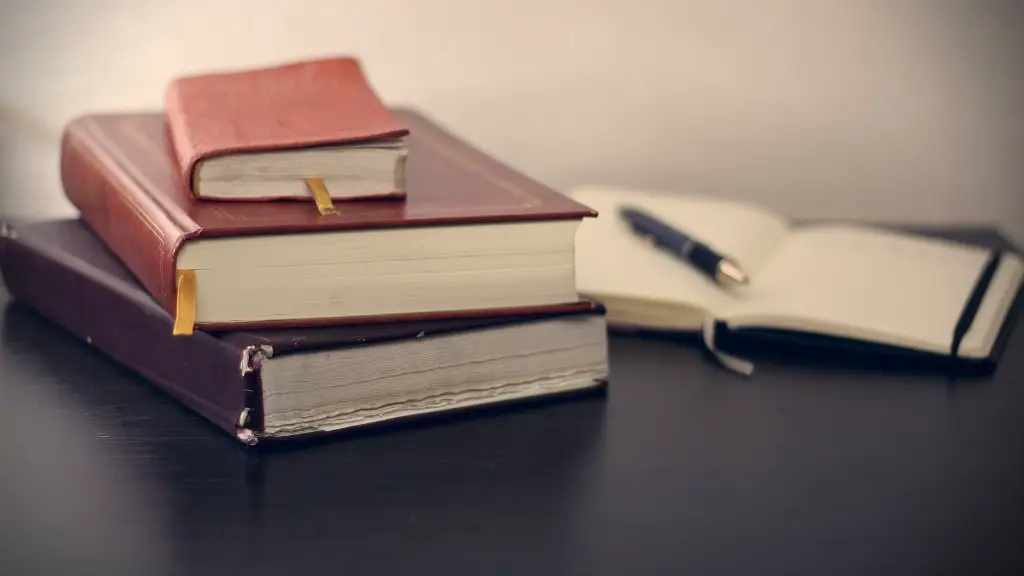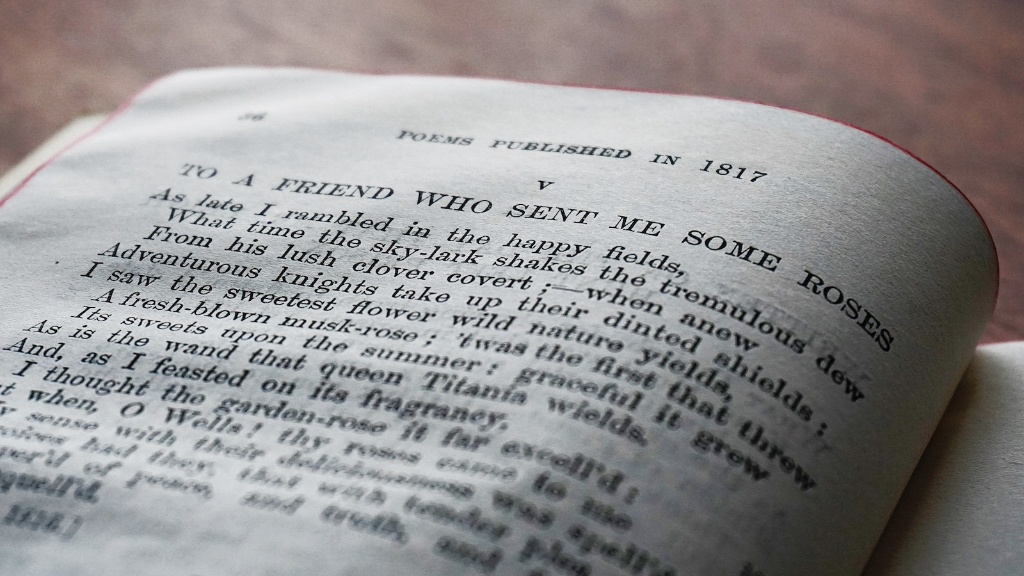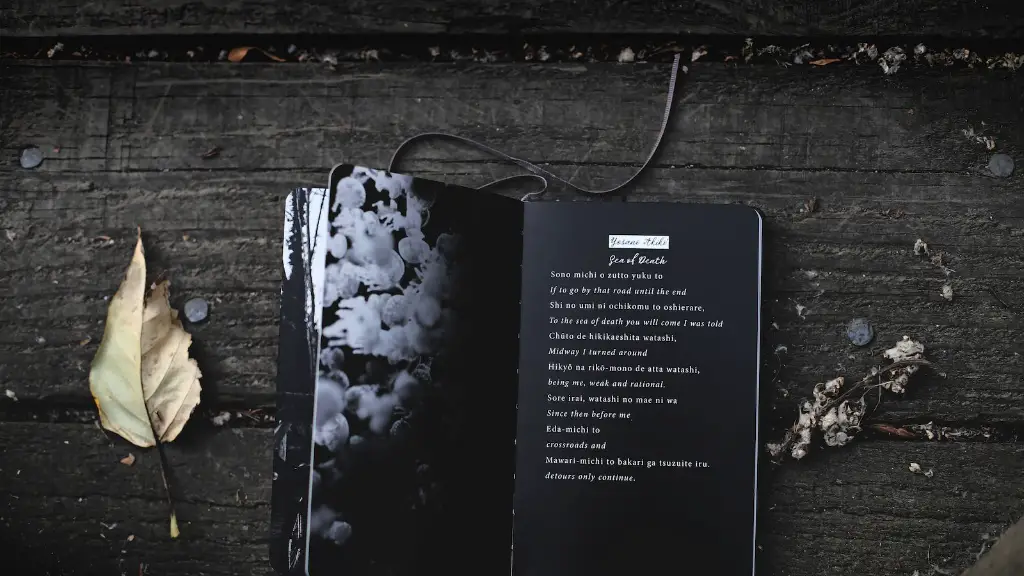Brief History Of Free Verse Poetry
Free verse poetry is a form of poetry that does not have a strict structure of rhyme, meter, or length. It has been believed to have originated in 17th century England as a reaction to the restricted poetic forms of the time. Themes and ideas were expressed in an open, flowing manner without any predefined rules and practices.
The works of William Wordsworth, Percy Bysshe Shelley, and other early 19th century Romantic poets were influential in the establishment of free verse. By the late 19th century, the French Symbolists had established the form on a more permanent basis, and Ezra Pound and other American Imagists had pushed the boundaries of the medium.
In modern times, free verse poetry remains very popular and some would argue that it has had its most acute flowering in the last century. The terms “open form” and “verse libre” have been used to describe the same concept.
Definition Of Free Verse Poetry
Generally speaking, free verse is defined as a form of poetry that does not have a regular meter, line length, or rhyme scheme. The poet is free to express themselves as they wish, without any restrictions. This is often done through the use of imagery, metaphor, and theme. The goal of free verse is to create a free-flowing, powerful poem.
Though it is not limited to specific forms or conventions, there are some elements that are commonly used in free verse. This includes the use of repetition, enjambment, caesura, fragmenting, and much more. These devices are often combined with each other in order to create a richer and more layered poem.
The lack of a predefined structure encourages the poet to explore their thoughts and ideas in a less constrained way, and this can often result in more evocative and emotive writing. It is also important to note that free verse does not necessarily mean that there is no form or structure, as this may vary from poem to poem.
Purpose of Free Verse Poetry
It is important to note that free verse has the potential to be as powerful and meaningful as any other form of poetry. While these poems do not follow a specific structure or meter, they can still be incredibly effective at communicating a range of emotions and ideas. This is due to its flexibility and ability to accommodate any type of ideas or stories.
What makes free verse particularly interesting is that it allows the reader to make their own interpretations about the meaning of the piece, as there is no “right” way to understand it. This provides an opportunity for creative expression, where the writer can explore their thoughts and feelings without the constraints of traditional poetic forms.
Furthermore, free verse allows the poet to express their thoughts in an unrestricted manner, which can often result in a more honest piece of writing. This can be a great way to express deep emotions, as it will allow the poet to create a poem that reflects their true feelings.
Stylistic Considerations of Free Verse Poetry
Though free verse is much more lenient when compared to other forms of poetry, it is still important to consider certain stylistic elements when writing a poem. One of the main things to consider is the poem’s tone. It is important to ensure that there is a consistency in the tone and that the poem is written in a way that best expresses the poet’s thoughts and feelings.
It is also important to consider the flow of the poem. A good poem will avoid too many awkward transitions or pauses, and should maintain a steady, flowing rhythm. The poet should also try to ensure that their writing voice remains consistent throughout the poem, as this will help to create a more unified piece.
Free verse can also be a great opportunity for experimentation with different structures and forms. Though some writers may prefer to go for a more traditional structure, others may choose to be more creative and explore different sounds and styles. This is a great way to create something unique, and to express yourself in a way that is not possible with other forms of poetry.
Analysis of Free Verse Poetry
Free verse is a powerful tool for communication, allowing the poet to express their thoughts in an unrestricted manner. The poet can create a poem that is both meaningful and emotive, without the need to adhere to any particular rules. This also provides an opportunity for exploration, allowing the poet to experiment with structure and sound, and to create something truly unique.
The lack of structure can also make free verse a great way to tell stories, as it allows the poet to focus on conveying their narrative without having to worry about sticking to a certain rules and conventions. This makes it ideal for expressing deep emotions, as it will enable the writer to express their true feelings and thoughts.
However, it is still important to consider certain stylistic elements when writing free verse, such as tone and rhythm. Taking the time to consider these elements can ensure that the poem is both creative and effective. Free verse can be a great way to communicate ideas and feelings, and it is a powerful tool for creative expression.
Benefits of Writing in Free Verse
Writing in free verse can provide a writer with many different benefits. As the poet is free from restrictions and rules, they can explore and develop their thoughts and ideas without feeling restricted. Furthermore, it can be a great way to tell stories and to express powerful, meaningful emotions.
Free verse can also allow a poet to experiment with structure and sound, using different techniques and devices to create something truly unique. It will also afford the writer an opportunity to convey the message that they want to communicate, without having to worry about following certain conventions or rules.
Writing in free verse allows the writer to express themselves in an unrestricted manner, and to communicate ideas and emotions in a powerful and creatively fulfilling way. It also provides an opportunity for creative exploration, and for the writer to find their own “voice” as a poet.
Applications of Free Verse Poetry
Free verse is a form of poetry that can be used for many different applications. It is a powerful tool for communication, as it allows the poet to express their thoughts and feelings in an unrestricted manner. It is also often used for storytelling, as it provides the flexibility needed for creating complex characters and narratives.
Free verse is also a great way to explore creative expression. The poet is free to experiment with structure and sound, and to create something truly unique. It also provides an opportunity to find one’s own “voice” as a poet, and to communicate ideas and emotions in a powerful and fulfilling way.
Free verse poetry can also be used for educational purposes. It provides an opportunity for learners to explore language and form in a creative and unrestricted manner, and can be a great way to encourage exploration and creativity.
Writing in free verse can also be a great way to explore personal identity and thought. It can be a powerful tool for self-expression, allowing the poet to express their true thoughts and feelings in an unrestricted manner. It can also provide a great opportunity for self-reflection and exploration.
Conclusion Of Free Verse Poetry
Free verse is a powerful form of poetry that has been used for many centuries. It provides an opportunity for the poet to express their thoughts and feelings without restrictions, and to explore structure and sound in a creative and unrestricted manner. It can be a great way to tell stories, to explore personal identity and thought, and to encourage creativity and exploration. Additionally, it can be a great way to learn about language and form, and can be used for many educational purposes. Free verse is one of the most powerful and flexible forms of poetry, and it is a great tool for creative expression.





